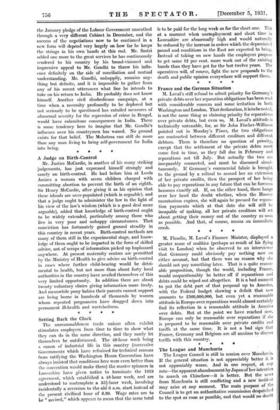Setting Back the Clock The unreasonableness trade unions often exhibit
stimulates employers from time to time to show what they can do in the same direction, and they rarely let themselves be outdistanced. The 48-hour week being a canon of industrial life in this country (successive Governments which have refrained for technical reasons from ratifying the Washington Hours- Convention have always insisted that conditions here were even better than the convention would make them) the master spinners in Lancashire have given notice to terminate the 1919 agreement, which established a 48-hour week, and are understood to contemplate a 55i-hour week, involVing incidentally a reversion to the old-6 a.m. start instead of the present Civilized hour of fi.30. • Wage rates are to he " revised," which appears to mean that the same total is to be paid for the long week as for the- short one. This at a moment when unemployment and short time in Lancashire are abnormally high and would naturally be reduced by the increase in orders which the depreciated pound and conditions in the East are expected to bring. Instead of taking on new hands the employers propose to get some 12 per cent. more work out of the existing hands than they have got for the last twelve years. The operatives will, of course, fight the new proposals to the death and public opinion everywhere will support them.
* * * *










































 Previous page
Previous page